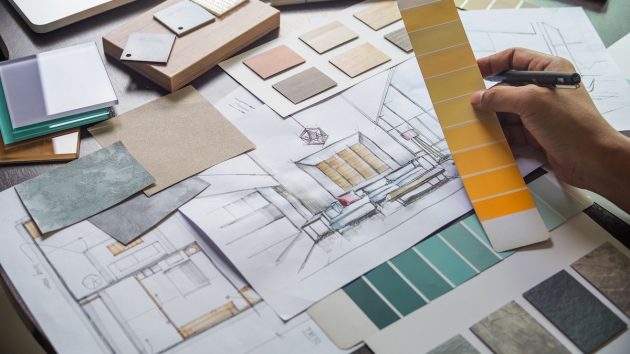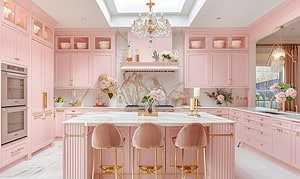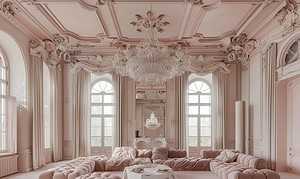Art is highly subjective, and while there are no hard and fast rules for creating it, most artists are bound by a framework within which they make their masterpieces.
The same goes for home design and interior décor.
Whether you are a DIY enthusiast or a hopeful professional, certain rules must be followed to ensure that your space looks beautiful, no matter how big or small it may be.
Let’s explore some easy-to-follow principles of interior décor done right.

The Principles Of Home Décor For Beginners
From area rugs to statement pieces, interior design can become overwhelming if you dive into it too fast. That’s why it would be a better idea to start with the fundamentals, as follows:
Balance
Balance is determined by the distribution of colors, textures, shapes, and patterns utilized in a room.
The three types of balances are formal, informal, and radial.
Formal balance helps create symmetry between elements of design, letting you repeat them throughout a space. On the contrary, an Informal balance helps create a balanced look without duplication. The weights match well; however, details differ.
And finally, to create radial balance, you have to make a centralized focal point that draws the eye as soon as someone walks into your space.
Rhythm
Rhythm is all about artistically creating repetitions in a space to help lead your gaze around the room. It can be incorporated by placing similar colors and patterns at set intervals.
This is made possible with colors that mesh well together and radiate out of your wall hangings, rugs, and sofa covers to reflect rhythm.
Harmony
Harmony in design helps create a peaceful ambiance. And you can make this happen by carefully choosing the different elements in the room so that they agree with each other to bring out a unified look.
Using a standard color for design creates harmony as the patterns or shapes you incorporate follow a similar scheme.
Emphasis
It is also good to have one dominant item in your room while other design elements play a supporting role. It acts as an anchor that breaks the monotony in a room.
However, there can only be one designated emphasis in a room; it could be a large painting or a formidable piece of furniture. But too much of that and your space might end up looking too cluttered and downright unattractive. Remember, less is always more when it comes to room décor.
Common Challenges For Novice or DIY Interior Designers
It is essential first to understand your reasons and motivation for undertaking a new interior design project. Next, scan the room that you’ll work with and identify the design elements that aren’t quite working and need to be removed or replaced.
Think about the essential décor tactics detailed above and figure out which ones appeal the most to you.
If you’re an amateur, who wants to experiment with their space, finding relevant materials and items in the market can be difficult if your idea is too unique. It may even lead to dissatisfaction if the experimentation doesn’t work out.
Budget is another constraint. Modern architecture and décor ask for expensive accessories and luxury detailing that cannot be perfectly executed on a budget. Having a handsome budget brings the liberty to experiment and implement.
Tips To Help You Get Started
You may be full of energy and ideas by the time you reach this point. So don’t get carried away and consider the listed tips before you get started.
- Keep lighting in consideration throughout the design process
- Leave the room space to breathe
- Remember the purpose of the place
- Do your research in the market before spending on a piece
- Pay special attention to the eye level
Conclusion
Whether you are setting up a workspace, a house, or a restaurant, stacked stones can add class to your walls and add to the detailing of your pillars, columns, and walls.
Stacked stones and bricks make the entire process of designing your space incredibly exciting, as they require a bit more resourcefulness and creativity to decorate your space beautifully.














